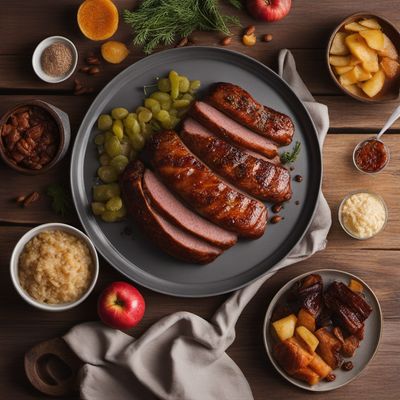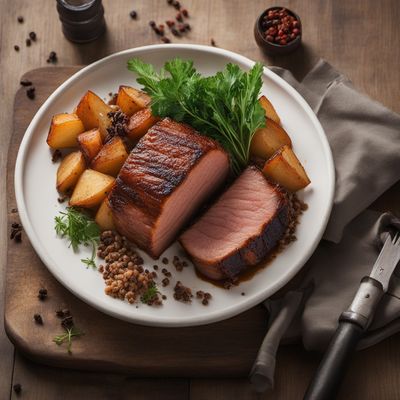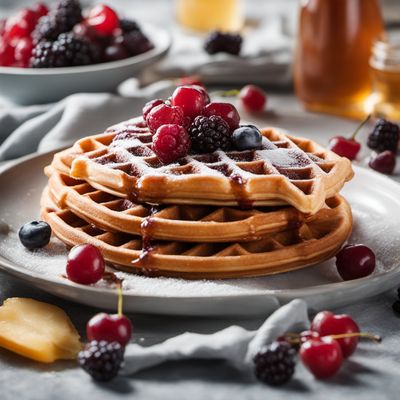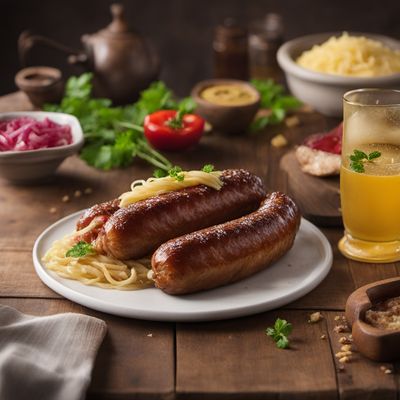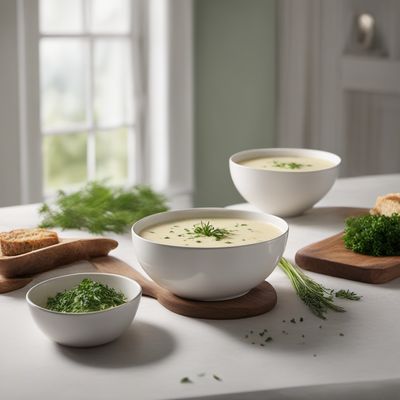
Recipe
German-style Mustard Eggs
Savory Delight: German Mustard Eggs with a Twist
4.4 out of 5
Indulge in the flavors of German cuisine with this delectable recipe for German-style Mustard Eggs. This dish combines the creaminess of boiled eggs with the tangy and zesty taste of mustard, creating a unique and satisfying culinary experience.
Metadata
Preparation time
15 minutes
Cooking time
10 minutes
Total time
25 minutes
Yields
4 servings
Preparation difficulty
Easy
Suitable for
Vegetarian, Gluten-free, Low-carb, Keto-friendly, Nut-free
Allergens
Eggs, Dairy
Not suitable for
Vegan, Dairy-free, Egg-free, Paleo, High-protein
Ingredients
-
6 large eggs 6 large eggs
-
2 tablespoons Dijon mustard 2 tablespoons Dijon mustard
-
1 tablespoon white vinegar 1 tablespoon white vinegar
-
1 tablespoon honey 1 tablespoon honey
-
1/2 cup (120ml) heavy cream 1/2 cup (120ml) heavy cream
-
Salt and pepper, to taste Salt and pepper, to taste
-
Fresh parsley or chives, for garnish Fresh parsley or chives, for garnish
Nutrition
- Calories (kcal / KJ): 250 kcal / 1046 KJ
- Fat (total, saturated): 20g, 10g
- Carbohydrates (total, sugars): 5g, 4g
- Protein: 12g
- Fiber: 0g
- Salt: 0.5g
Preparation
-
1.Place the eggs in a saucepan and cover them with cold water. Bring the water to a boil over medium heat. Once boiling, reduce the heat to low and let the eggs simmer for 9 minutes.
-
2.While the eggs are cooking, prepare an ice bath by filling a large bowl with cold water and ice cubes.
-
3.Once the eggs are cooked, transfer them to the ice bath and let them cool for 5 minutes. This will stop the cooking process and make them easier to peel.
-
4.Peel the eggs and set them aside.
-
5.In a small saucepan, whisk together the Dijon mustard, white vinegar, honey, and heavy cream. Season with salt and pepper to taste.
-
6.Place the saucepan over medium heat and cook the sauce, stirring constantly, until it thickens slightly, about 5 minutes.
-
7.Add the peeled eggs to the saucepan and gently stir to coat them with the mustard sauce. Cook for an additional 2 minutes to warm the eggs.
-
8.Remove from heat and transfer the eggs to a serving dish. Garnish with fresh parsley or chives.
-
9.Serve the German-style Mustard Eggs warm as a main course, accompanied by crusty bread or boiled potatoes.
Treat your ingredients with care...
- Eggs — To achieve perfectly boiled eggs, make sure to simmer them gently rather than boiling them vigorously. This will prevent the eggs from cracking and ensure a creamy yolk texture.
Tips & Tricks
- For a spicier kick, you can use whole grain mustard instead of Dijon mustard.
- If you prefer a lighter version, you can substitute half-and-half for the heavy cream.
- Serve the German-style Mustard Eggs with a side of sautéed spinach or roasted asparagus for a complete meal.
- To add a crunchy element, sprinkle some toasted breadcrumbs over the dish before serving.
- Experiment with different herbs for garnish, such as dill or tarragon, to add a unique flavor twist.
Serving advice
Serve the German-style Mustard Eggs warm as a main course. Accompany them with a side of warm crusty bread or boiled potatoes to soak up the delicious mustard sauce.
Presentation advice
Arrange the German-style Mustard Eggs on a platter, ensuring that the creamy mustard sauce is visible. Garnish with fresh parsley or chives to add a pop of color. Serve with a side of warm crusty bread or boiled potatoes for an inviting presentation.
More recipes...
More German cuisine dishes » Browse all

Bergische Waffles
Bergische Waffles are a traditional German breakfast dish that is perfect for a lazy Sunday morning. They are light and fluffy waffles that are...

Flädle
Flädle is a German pancake that is similar to a crepe. It is a popular dish in Southern Germany and Austria.

Prinzregententorte
Prince Regent Cake
Prinzregententorte is a classic German cake that is made with layers of chocolate sponge cake and rich chocolate buttercream. It's a decadent...
